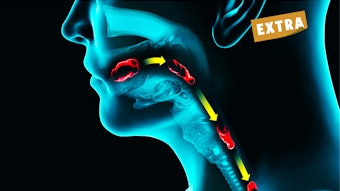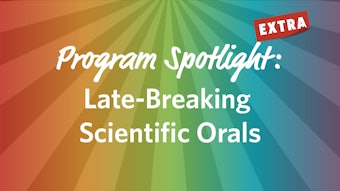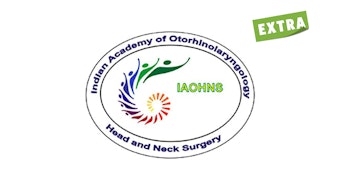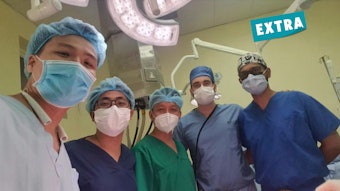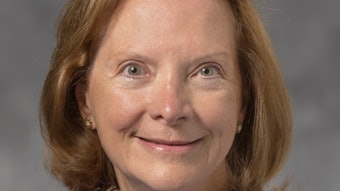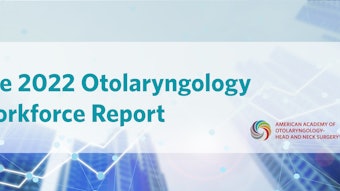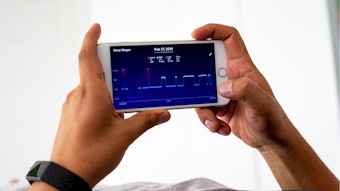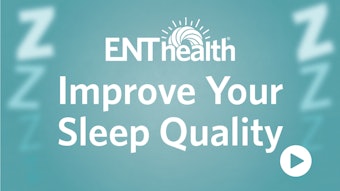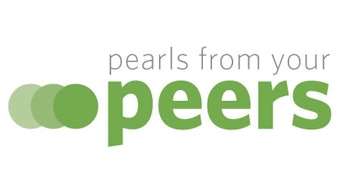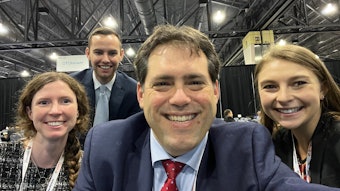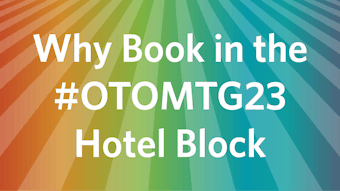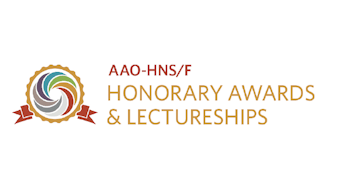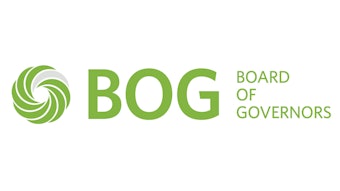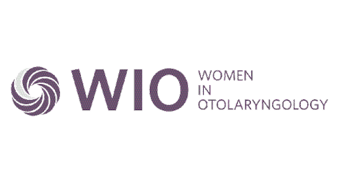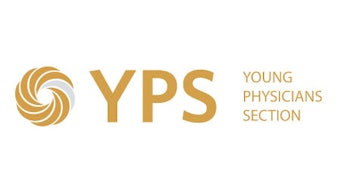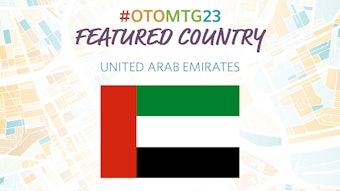(The Best) Knowledge Matters
Serving the education needs of the specialty for the foreseeable future.
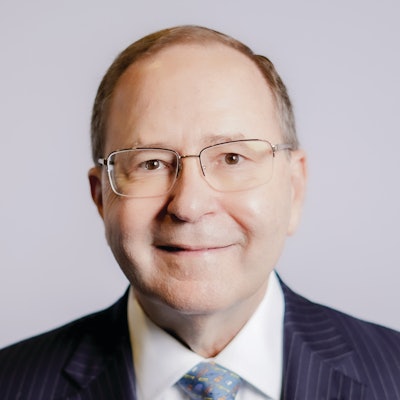 James C. Denneny III, MD
James C. Denneny III, MD
AAO-HNS/F Executive Vice President and CEO
In reality, even though communication and technology have improved, we have not fully reached the goal of getting the best information to all. Now at a time when the half-life of cutting-edge basic science and clinical information is dropping logarithmically, it is even more critical to identify the best data-driven evidence that will facilitate the ongoing education curriculum content update required for best patient care for all. Professional education is inextricably linked to the quality and research activities that allow our dedicated and talented volunteers, who serve on the AAO-HNSF Education Committees, to collate the latest information available for each update.
My interest in professional education both as a consumer and provider began early in my career. After completing a fellowship with M. Eugene Tardy, Jr., MD, who happened to be AAO-HNS/F President at the time, he appointed me to the Home Study Course faculty. The eight years I spent creating the quarterly Home Study Courses and subsequently working on questions for the American Board of Otolaryngology examinations embedded the value and necessity of continually updating and upgrading education offerings that are reflective of advances in the practice of medicine.
By the time I took the job as EVP/CEO in December 2014, I had taken the Home Study Course for 34 consecutive years as both an academician and private practitioner. When I accepted my current position, one of the highest priorities was to keep the Foundation on the cutting-edge of professional education content and its dissemination to otolaryngologists both across the U.S. and around the world. The Foundation has introduced two major improvements since I have been here, led by three outstanding Coordinators for Education, Sonya Malekzadeh, MD, Richard V. Smith, MD, and Jeffrey P. Simons, MD, MMM. I will be unveiling the third major change, the creation of the Otolaryngology Core Curriculum (OCC) later in this column.
Comprehensive Curriculum Update
When I first started in my current position, Dr. Malekzadeh, the Coordinator for Education at the time, informed me there was an urgent need to update the otolaryngology curriculum that served as roadmap for resident education and Board examination. I was involved in the development of the first otolaryngology curriculum that was developed by the AAO-HNSF in 1986 while on the New Materials Task Force from 1984 – 1992. The next update, the National Resident Otolaryngology Study Guide, occurred in 2002.
The growth and evolution of our specialty necessitated the extensive revision of existing curriculum and content along with the development of new materials and a more modern delivery system. A task force was created to plan and oversee this critical advancement in otolaryngology education. The Comprehensive Curriculum Task Force and Work Group, comprised of multispecialty representatives, subsequently developed the comprehensive curriculum to support both residents and practicing otolaryngologists in their pursuit of otolaryngology-head and neck surgery education.
This updated curriculum, OTO Source, which launched July 2018, reflected the new requirements of the Accreditation Council for Graduate Medical Education (ACGME), Accreditation Council for Continuing Medical Education (ACCME), and the American Board of Otolaryngology (ABOto) but now operating as American Board of Otolaryngology – Head and Neck Surgery (ABOHNS), along with the changing practice of modern medicine. The goal of OTO Source was to provide residents, program directors, faculty members, and practicing otolaryngologists a standard study guide with teaching tools to assist with board certification, recertification, and lifelong learning. It also became the single source online repository for all otolaryngology education content developed by the AAO-HNSF and the otolaryngology specialty societies. OTO Source provides an outline form and serves as a roadmap of topics, learning objectives, and references developed by leaders in the field.
OTO Source Task Force Members at the Time of Creation
- C. Ron Cannon, MD
- Sukgi S. Choi, MD
- Marion E. Couch, MD, PhD
- James C. Denneny III, MD
- Sonya Malekzadeh, MD, Chair
- Brian Nussenbaum, MD
- Michael J. Ruckenstein, MD, MSc
- Michael G. Stewart, MD, MPH
- Scott P. Stringer, MD
- Richard V. Smith, MD
- Gayle E. Woodson, MD
OTO Source Timeline
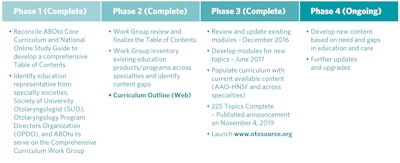
FLEX
As technology improved and education needs and strategies changed, it was clear that our organization needed to move forward with it. The Future of Education Task Force, led by Richard V. Smith, MD, past Coordinator for Education, was convened in 2018 to investigate and identify the cutting-edge platform and contemporary education theory and report to the Board of Directors. Extensive research, including multiple-user interviews, study of the evolution of education theory, review of technology advances, and the advancement of content needs, all contributed to the many recommendations that composed this landmark report, which set our education agenda for the next five to 10 years. The Foundation goal to provide the education materials that members want, when they want it, how they want it, and where they want it, is well served by FLEX, the Foundation’s “Focused Lifelong Education Xperience” that replaced the Home Study Course.
Our flagship FLEX education program was designed to incorporate a variety of education topics in each issue presented using multiple state-of-the-art formats designed to cover emerging subject matter in a more contemporaneous fashion than previously possible. It is the professional support that otolaryngologists need to help them meet the challenges of their otolaryngology practice and allow them to achieve mastery of the specialty throughout your career. There are a number of upgrades that FLEX offers when compared to the Home Study Course it replaced, including the addition of more than 200 courses residing in OTO Logic, the replacement and upgrade platform from AcademyU®. There are eight sections per year that offer 13 hours of CME per section.
Task Force Members at the Time of Creation
- Albert L. Merati, MD, AAO-HNS/F President
- Duane J. Taylor, MD, AAO-HNS/F President-Elect
- Jeffrey P. Simons, MD, MMM, Coordinator for Education-Elect
- Richard V. Smith, MD, Chair and Coordinator for Education
- Mark Wax, MD, Coordinator for Annual Meeting
Otolaryngology Core Curriculum (OCC)
This past year, the Foundation and the otolaryngology academic community have been discussing ways to close the loop on the original project that created the OTO Source outline completed in 2018 by adding state-of-the-art content modules for each topic contained in the outline. The addition of detailed multimedia education materials will operationalize the concept of a standardized, base curriculum available to all otolaryngology residents in the U.S. regardless of other education assets that their individual programs may offer. The consistency afforded by this project will be particularly valuable to residency programs with limited resources and will directly affect patient care downstream. I feel that there will also be opportunities available to disseminate this knowledge globally through our International Corresponding Societies and help raise the standard of patient care throughout the world.
The Foundation will work with an Advisory Council chosen by the academic consortium having broad representation with a significant resident presence. The initial recommendations as to what the education modules should contain will come from this group. Equally important, will be the ongoing evaluation and suggestions for improvement. The OCC will be constructed as a two-year cycle containing 100 modules of education material with analytic capabilities to be presented on a weekly basis. The Foundation will use Silverchair as the platform and existing education committees under the guidance of the Advisory Council to produce the modules. The goal is to start this program for resident consumption on July 1, 2024.
The Foundation will create an original set of modules that will act as a “pilot” series of education modules that will be available starting July 1, 2024, for resident consumption. The feedback from the residents and academic leadership provided through the Advisory Council will be sought and used to improve the next generation of modules that incorporate agreed-upon improvements as recommended by the users. One of the roles of the Advisory Council is to provide continual feedback that results in a quality improvement process for ongoing improvement of the product.
The Advisory Council will be involved from the beginning with Silverchair, not only to establish a timeline, but to understand all of the features and options available and advise the Foundation proactively as well as through ongoing assessment of the performance of the platform to make sure the maximum benefit has afforded resident participants in the faculty of each program.
The Foundation Education Committees will be tasked with developing and formatting the content as requested by the Advisory Council. There are currently nine such committees operating that consists of academic educators in all subspecialties, resident members, and a very few private practitioners. Each of these committees has roughly 25 members and guests and have capacity and interest in taking on this new education product. The Foundation feels that this system will ensure consistency and excellent across product lines. The experience of these committee members (up to 10 years in the education system) is an advantage that the SCORE system used by the American Board of Surgery and the multiple surgical specialties, which the OCC is modeled after did not have as they began. This asset makes the shorter time frame from the decision to proceed with the OCC to production within one year possible when compared to the SCORE experience.
The addition of the OCC to the OTO Source outline will create a multimedia education resource that otolaryngology has never seen. The digital nature of the OCC will make analytics and widespread distribution possible, reaching otolaryngologists who have previously been unable to access this information. The OCC will begin the journey of lifelong learning, benefiting residents and practicing physicians alike, both in the U.S. and globally. I believe the content in the OCC can also be used to familiarize staff with otolaryngology and be used to train advanced practice providers in the clinical practice of otolaryngology. FLEX will serve as the complimentary product that takes “deep dives” into specific topics on a rotational basis. Together they can serve the education needs of the specialty for the foreseeable future.
